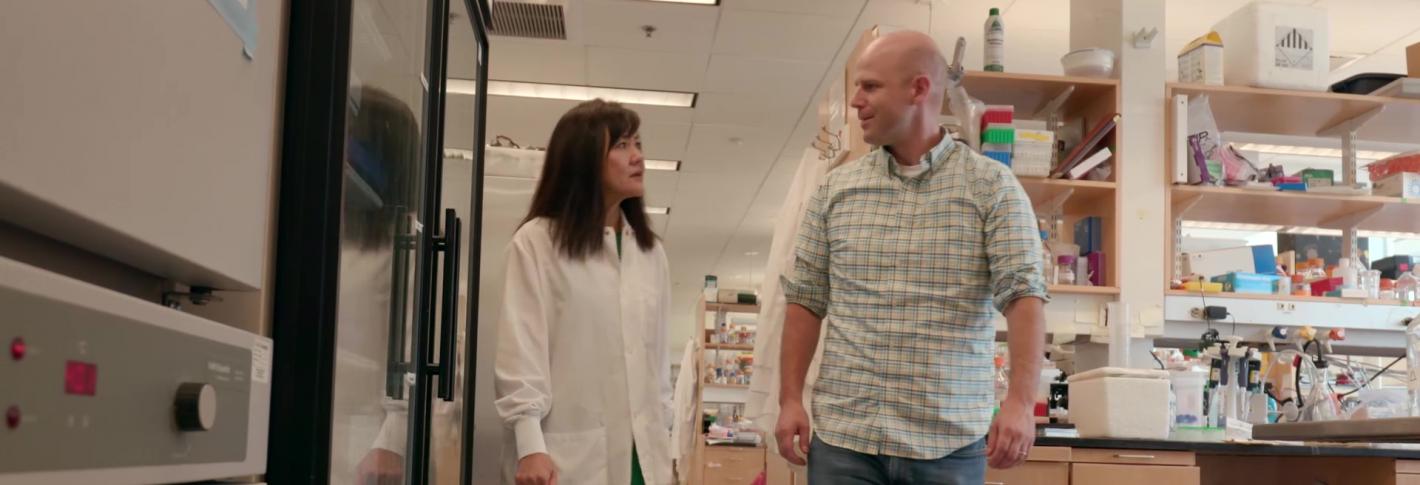Register via the link on the left to participate in an online Forum webcast spotlighting the latest research on Alzheimer’s disease at MIT.
Neuroscientists at MIT’s Picower Institute for Learning and Memory have discovered how the most common Alzheimer’s disease risk gene, APOE4, causes a buildup of amyloid protein plaques in the brain’s blood vessels, disrupting the blood-brain barrier that stringently filters what goes into and comes out of the brain. In a new study in Nature Medicine they also demonstrate how to repair the disruption with medicines.
The team, led by Professor Li-Huei Tsai and postdoctoral researcher Joel Blanchard, made their findings by engineering a lab model of the blood-brain barrier using human stem cells carrying APOE4. Their efforts are part of the Tsai lab’s multipronged, systems-wide study of Alzheimer’s disease, an affliction that affects nearly 30 million people worldwide.
The webcast will be live streamed with an interactive Q&A to follow the presentations. Live captions will be available. This talk will be archived and made available on the MIT Alumni Association YouTube channel within a week of broadcast.
More information from the MIT Alumni Association.




